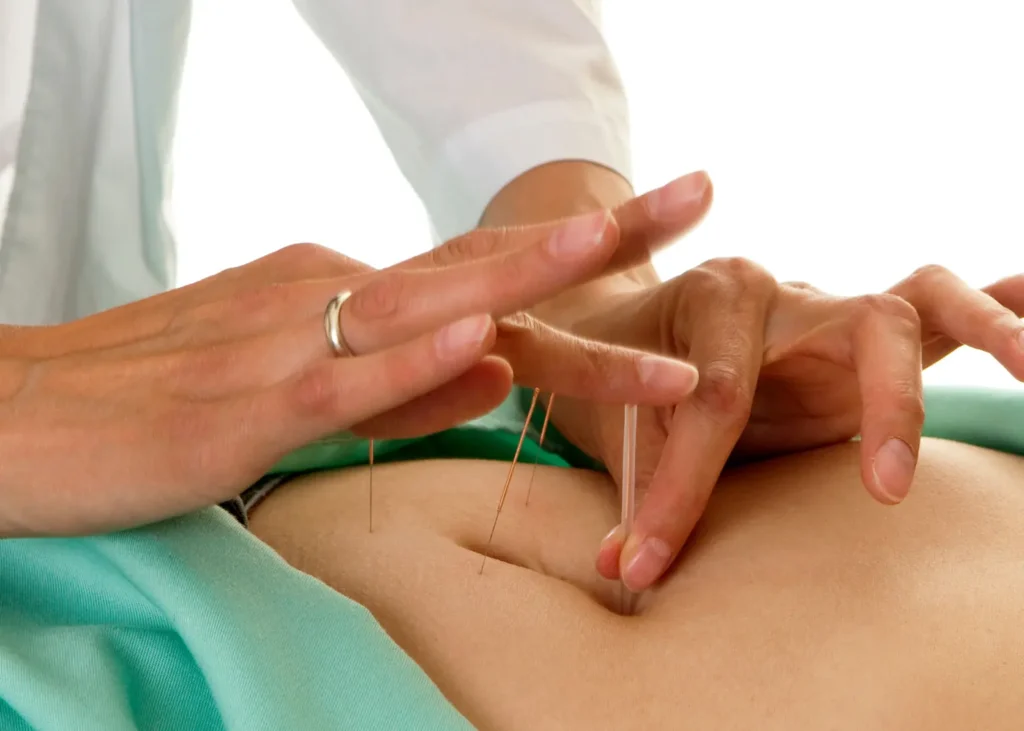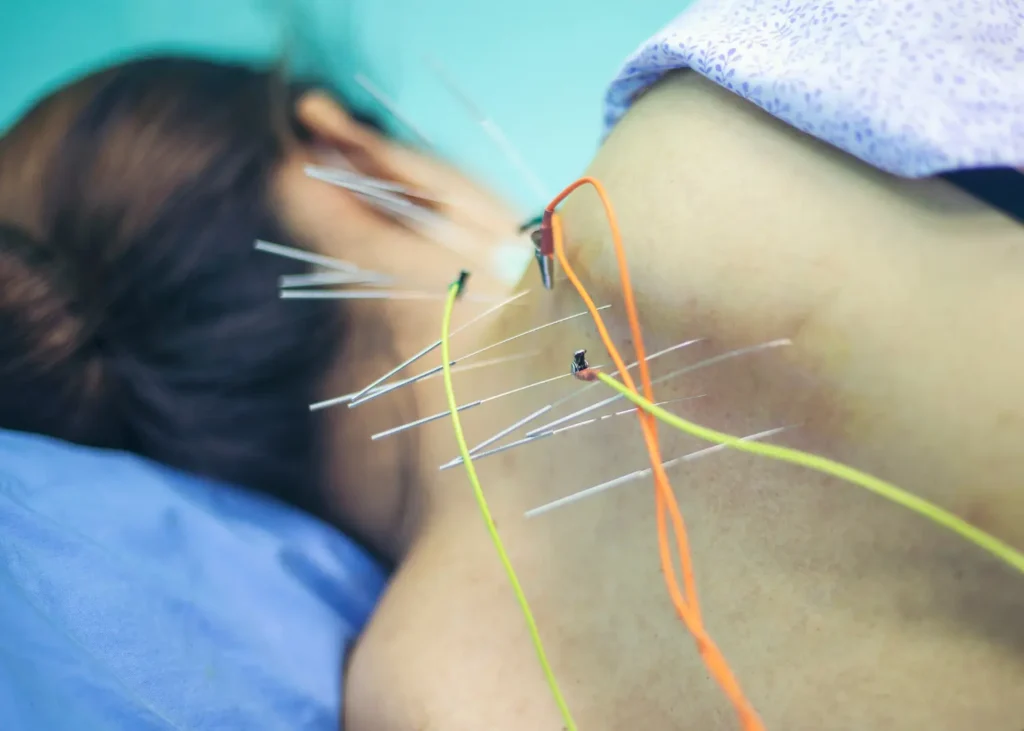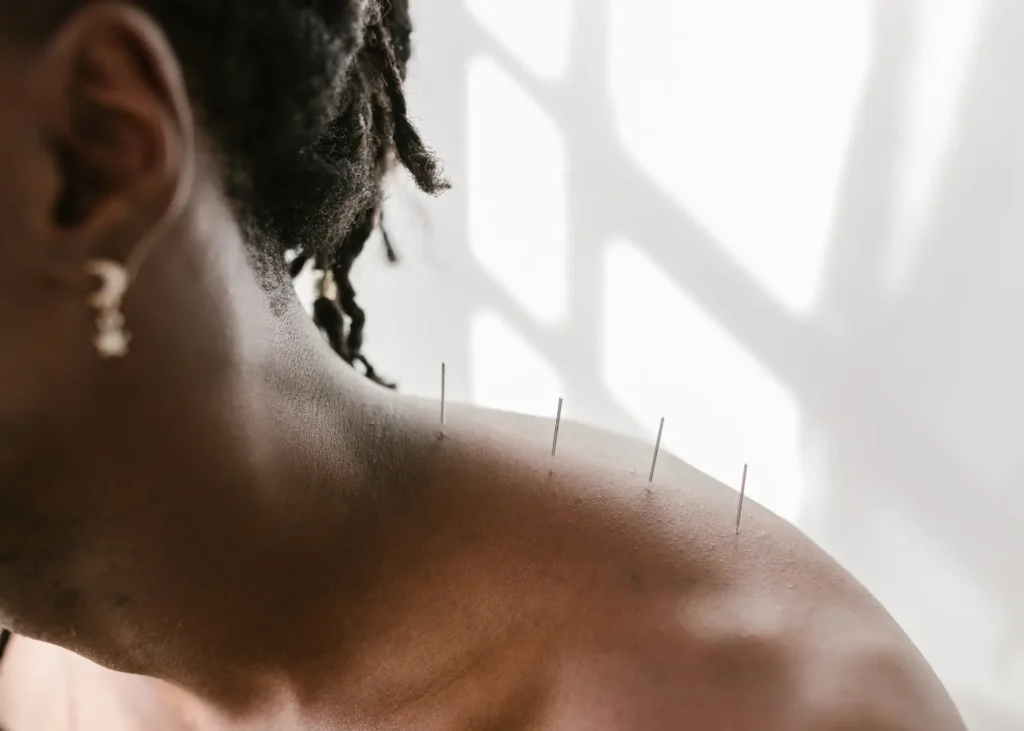Acupuncture is increasingly being used not only to treat existing ailments but also to maintain wellness and prevent illness. In modern holistic healthcare settings such as ModMeds, practitioners emphasize preventive acupuncture, using acupuncture proactively to keep the body in balance before severe disease develops. This approach aligns with a growing recognition that acupuncture can promote overall well-being and help ward off a range of conditions. By focusing exclusively on acupuncture as a preventive tool, we can explore how this ancient therapy addresses premorbid states and supports long-term health.
Traditional Chinese Medicine and Preventive Care
The concept of holistic preventive care has deep roots in the philosophy of Traditional Chinese Medicine (TCM). Centuries ago, Chinese physicians were expected to maintain patients’ health rather than just treat disease after it had arisen. The classic TCM text Huangdi Neijing (Yellow Emperor’s Inner Classic) advises that a “superior” doctor treats illness before symptoms appear, warning that waiting to treat a disease after it fully develops is like digging a well only when one becomes thirsty. In ancient China, some doctors were reputedly paid to keep patients well, and would lose payment if the patient fell ill. This preventive mindset underpins TCM practices like acupuncture. By diagnosing subtle energetic imbalances via the pulse, tongue, and other traditional methods, an acupuncturist can intervene early. The goal is to correct minor disruptions in the flow of Qi (vital energy) along the meridians, using needle stimulation or related techniques, so that these imbalances do not progress into more serious clinical disease. In TCM’s acupuncture treatment paradigm, disease is treated at the pre-clinical stage – essentially nipping problems in the bud by harmonizing the body’s internal environment.
Premorbid States: Addressing Imbalances Early
Modern practitioners echo this ancient wisdom by targeting premorbid states, subtle health issues that conventional medicine might dismiss until they worsen. From a Western perspective, premorbid states are mild symptoms or functional problems with no definitive lab findings or diagnoses, yet they indicate the body is not in optimal balance. The most fertile ground for acupuncture intervention is for disorders in their premorbid state, meaning minor issues that lack a clear biomedical diagnosis but can be understood and corrected through acupuncture’s diagnostic lens. These early imbalances have been categorized as:
- Asthenic states – persistent fatigue, low energy, mild depression, tension headaches
- Autonomic dysregulation – chronic stress, anxiety, poor sleep, or bowel habits
- Immune dysregulation – frequent colds, sinus infections, or other recurrent infections without an obvious immune defect
Such symptoms are often overlooked or only given generic advice in standard care. However, an acupuncturist can recognize these patterns as incipient dysfunction in specific organ-meridian systems. Someone who is “tired all the time,” experiences slight dizziness, and has cold extremities might be considered to have a Spleen-Qi deficiency in TCM terms. This treatable imbalance can potentially lead to serious digestive or metabolic illnesses. By treating these minor yet chronic complaints with acupuncture, practitioners provide what is essentially acupuncture for wellness: helping patients achieve better energy, mood, and immune resilience even when no overt disease is present. Many patients today actively seek this type of care, requesting assistance to attain optimal vitality rather than waiting until a condition becomes severe. Wellness acupuncture thus serves as a form of “preventive maintenance,” detecting and correcting early disturbances in the body’s systems.
Boosting the Immune System with Acupuncture

A key aspect of staying healthy is a robust immune system. Acupuncture has notable effects on immune function, which partly explains its preventive benefits. In TCM theory, regular acupuncture strengthens the human body to resist diseases by stimulating specific points that bolster one’s Wei Qi (defensive energy). Modern research supports this concept: acupuncture has been found to modulate immunity in measurable ways. Needling certain points like ST36 (Zusanli) can increase immune cell counts and enhance anti-pathogen responses in the body. Acupuncture regulates immune system activity, helping to normalize overactive inflammation and improve underactive defenses. This bidirectional immune modulation can enhance the body’s resilience to stress and has even been noted to improve anticancer immune responses.
Stress Reduction and Mental Well-Being
Preventive health isn’t just about the physical body. Mental and emotional wellness are equally crucial. Chronic stress and unmanaged anxiety are known risk factors for many illnesses. Acupuncture’s ability to calm the mind and balance the nervous system is therefore a valuable preventive tool. Many people seek acupuncture for relief of stress, tension, and mood disorders, finding that it produces a profound relaxation response. Neurologically, acupuncture triggers the release of neurotransmitters and hormones that promote calm. Needling specific points can spur the release of endorphins and regulate cortisol, our stress hormone. These biochemical changes correspond to reduced sympathetic (“fight or flight”) activity and enhanced parasympathetic (“rest and digest”) activity. In practical terms, patients often report feeling tranquil, clear-headed, and better equipped to cope with stressors after an acupuncture session. The acupuncture benefits for anxiety have been demonstrated in clinical research as well.
Techniques like auriculotherapy (ear acupuncture) are beneficial for calming the mind and are even used in addiction recovery programs to reduce cravings and anxiety. Some practitioners also incorporate acupressure or tui na, essentially a form of massage acupuncture where pressure and massage techniques stimulate acupuncture points, to enhance relaxation during treatment. These methods work on the same principle as needles, activating the body’s self-regulating mechanisms to diffuse tension. Regular acupuncture or acupressure sessions thus become a form of mental hygiene, much like meditation or yoga, helping maintain emotional balance. The benefits of immune system acupuncture in this realm exemplify its role in promoting overall wellness.
Acupuncture Benefits for Pain Management and Prevention
One of the best-known benefits of acupuncture is pain relief. People often turn to acupuncture for chronic pain conditions such as back pain, arthritis, migraines, or muscle injuries, sometimes after conventional painkillers or therapies have failed. By alleviating pain, acupuncture not only improves daily functioning but can also play a preventive role. Chronic pain, if uncontrolled, can lead to a cascade of other health issues: limited mobility, depression, over-reliance on opioids, and so on. Effective natural pain management helps prevent those complications. Acupuncture achieves pain relief through multiple mechanisms. It stimulates the nervous system to release endorphins, the body’s natural opioids that diminish pain signals.
Making Acupuncture Part of a Preventive Wellness Routine

To reap the full preventive benefits of acupuncture, consistency is key. Rather than seeing acupuncture as a one-off remedy, it can be most effective when incorporated into one’s ongoing health maintenance routine. Many acupuncture wellness centers offer programs for regular visits focused on wellness optimization. For a person in good health, this may mean receiving a “tune-up” treatment periodically to maintain bodily balance. For those with more pronounced imbalances or ongoing issues, more frequent sessions might be recommended until stability is achieved, after which a maintenance schedule can be adopted.
The best acupuncture therapy plan for preventive care is highly individualized. An acupuncturist will assess your unique constitution, lifestyle, and any subtle complaints, then tailor the treatment points and frequency accordingly. Acupuncture for preventive care is a highly individualized process that considers your unique characteristics and lifestyle. A skilled acupuncturist will thoroughly assess your health to create a personalized treatment plan aimed at enhancing your long-term well-being and natural defenses. A comprehensive approach ensures that the therapy is precisely aligned with your specific needs:
- Individual Constitution Assessment: Your acupuncturist will begin by conducting a detailed assessment of your unique constitution. This involves a comprehensive discussion about your inherent qualities, including your specific body type, underlying strengths, and any predispositions you may have. Understanding these fundamental aspects allows the practitioner to identify potential areas of imbalance and tailor the preventive care strategy to your personal physiological makeup, setting the foundation for effective treatment.
- Lifestyle Factor Analysis: A crucial element in developing an effective acupuncture plan is a thorough examination of your lifestyle. This encompasses various aspects of your daily existence, such as your routines, dietary habits, current stress levels, sleep quality, and the amount of physical activity you engage in. By gaining insights into these elements, the acupuncturist can pinpoint areas where proactive measures will be most beneficial, fostering balance and preventing future health issues.
- Addressing Subtle Complaints: Even seemingly minor discomforts that may not yet warrant a formal medical diagnosis can provide valuable insights for preventive care. These subtle cues might include persistent minor aches, feelings of fatigue, occasional digestive upset, or slight mood fluctuations.
- Personalized Treatment Point Selection: Based on the detailed assessment, the acupuncturist will meticulously customize your treatment plan. This involves the precise selection of specific acupuncture points that directly correspond to your individual needs and any identified bodily imbalances. This tailored approach ensures that the therapy is highly targeted and effective, aiming to restore harmony and optimize your body’s natural healing capabilities, promoting a lasting state of health and vitality.
- Customized Treatment Frequency: The frequency of your acupuncture sessions will also be carefully determined based on your unique circumstances and the overarching objectives of your preventive care plan. This personalized scheduling ensures that the treatment supports your body’s gradual return to balance and maintenance of optimal health. The ultimate goal is to re-establish harmony and equilibrium within your system, thereby fortifying your inherent defenses and cultivating long-term health and a vibrant quality of life.
This personalized approach ensures that each session addresses the specific areas of imbalance that you are prone to. If you tend to carry stress in your neck and shoulders, preventive treatments may focus on points that release that tension and support your Liver and Kidney energy (in TCM terms) to keep stress from overwhelming you. If you are susceptible to seasonal allergies or frequent colds, sessions might emphasize boosting defensive Qi and lung function ahead of allergy season. Over time, patients often learn to recognize their own early warning signs of imbalance and can schedule an acupuncture “reset” to address these issues before they escalate.

Another advantage of engaging with an acupuncture and wellness center regularly is the holistic guidance that typically accompanies treatments. Acupuncturists, trained in TCM, often advise on diet, exercise (like Tai Chi or Qi Gong), and other lifestyle factors as part of preventive care. While our focus here is exclusively on acupuncture, these adjunct suggestions can synergize with acupuncture’s effects. The result is a comprehensive preventive strategy that touches all aspects of health. Many wellness centers also offer a combination of services – you might find acupuncture paired with therapeutic massage, mindfulness training, or herbal consultations. However, acupuncture remains the central modality due to its unique ability to harmonize the body’s systems. Patients who commit to this integrative, preventive approach often find they not only get sick less often, but also feel more balanced and energetic year-round.
Acupuncture’s role in preventive medicine is a powerful illustration of the adage “an ounce of prevention is worth a pound of cure.” By correcting subtle imbalances and enhancing the body’s self-regulatory capacity, acupuncture helps individuals maintain their health before serious illness has a chance to develop. This ancient practice is now increasingly leveraged to promote wellness, resilience, and longevity. Embracing preventive acupuncture means viewing healthcare not merely as fixing problems, but as an ongoing process of keeping the body and mind in harmonious balance. As research continues to validate acupuncture’s benefits, more people are making it a regular part of their self-care routine. In doing so, they tap into a time-tested system of medicine that treats the person as a whole, aiming for long-term wellness and addressing issues at their root. Preventive acupuncture, grounded in the rich heritage of traditional Chinese medicine yet bolstered by modern evidence, represents a promising pathway to healthier, more vibrant lives.
Sources
- Mary Ann Liebert, Inc., “Acupuncture equals disease prevention say new studies,” MedicalXpress (2019)
- Joseph M. Helms, M.D., “An Overview of Medical Acupuncture,” American Academy of Medical Acupuncture (2020)
- Fengxia Liang et al., “Acupuncture and Immunity,” Journal of Immunology Research (2015) via PMC
- Carly Belsterling, “Acupuncture Significantly Reduces Stress, Pain, and Anxiety for Patients Undergoing IVF,” University Hospitals News (2025)
- Harvard Health Publishing, “Endorphins: The brain’s natural pain reliever,” Harvard Health Blog (accessed 2023)